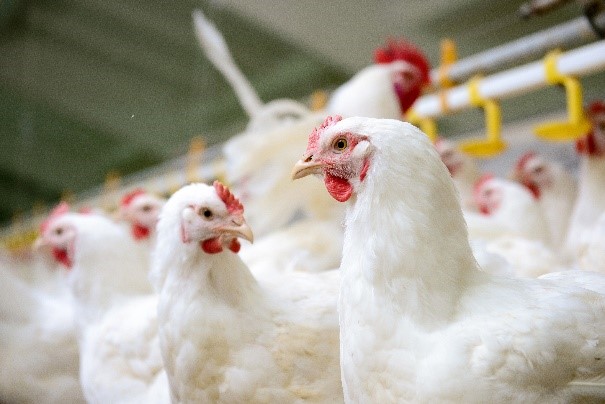Confused About Hormones and Eggs?
July 11, 2019
July 11, 2019

Ensuring eggs are safe for your family is a top priority for egg farmers and they are committed to fully complying with all government regulations as applicable to their farms.
Many consumers do not know that the FDA banned the use of hormones in the egg and poultry industry in the United States more than 60 years ago1. Adding to the confusion, some retailers and distributors add a “No Added Hormones” or similar message on their egg or poultry product packaging. Misunderstandings may also arise due to the ability of beef producers to utilize hormones legally in production practice, due to proven safety and efficacy2.
Even if hormones were permitted in the egg industry, it is unlikely they would be used. Extensive research conducted by a multitude of sources in avian nutrition has proven little to no benefits with the use of added hormones in poultry meat and egg production, plus it just simply is not practical.3
Chickens cannot actively benefit from the oral consumption of hormones, and research shows that chickens must be injected multiple times a day to see improvements of any functions. Not only is it unrealistic for a person to carry out this daunting task, but there are also many drawbacks to the financial aspects of such practices.
Instead, producers have focused on providing a well-maintained environment and maximizing the genetic potential of chickens to naturally increase production and reach the optimum performance of birds.
Hormones are naturally occurring and found in all living things including plants, animals and people. They are natural internal messengers sending signals to direct important cell and tissue functions, like growth and development. Due to their natural occurrence, hormones are found in nearly everything we consume: meats, eggs, dairy products, vegetables, and fruits. But, no growth or production hormones are ever fed to pullets (younger hens) being grown to be egg-laying hens nor during the egg-laying period.
Egg farmers enjoy the same eggs with their families as they sell to consumers, so they understand and put a strong emphasis on ensuring food safety in every phase of egg production.
Learn more about UEP Certified. Follow us on Facebook and Twitter.